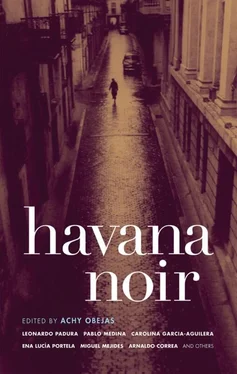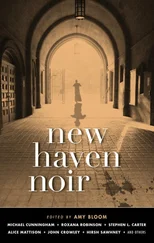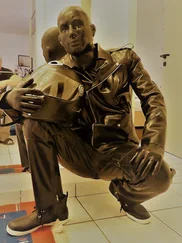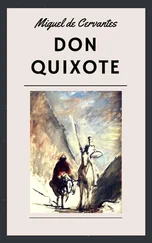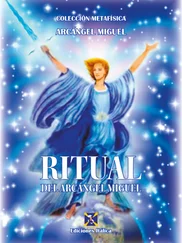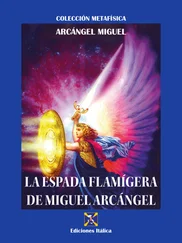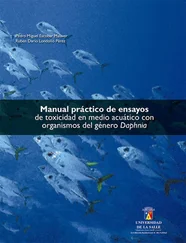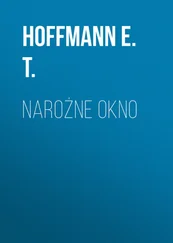Miguel Mejides - Havana Noir
Здесь есть возможность читать онлайн «Miguel Mejides - Havana Noir» весь текст электронной книги совершенно бесплатно (целиком полную версию без сокращений). В некоторых случаях можно слушать аудио, скачать через торрент в формате fb2 и присутствует краткое содержание. Город: New York, Год выпуска: 2007, ISBN: 2007, Издательство: Akashic Books, Жанр: Детектив, на английском языке. Описание произведения, (предисловие) а так же отзывы посетителей доступны на портале библиотеки ЛибКат.
- Название:Havana Noir
- Автор:
- Издательство:Akashic Books
- Жанр:
- Год:2007
- Город:New York
- ISBN:978-1-933354-38-5
- Рейтинг книги:4 / 5. Голосов: 1
-
Избранное:Добавить в избранное
- Отзывы:
-
Ваша оценка:
- 80
- 1
- 2
- 3
- 4
- 5
Havana Noir: краткое содержание, описание и аннотация
Предлагаем к чтению аннотацию, описание, краткое содержание или предисловие (зависит от того, что написал сам автор книги «Havana Noir»). Если вы не нашли необходимую информацию о книге — напишите в комментариях, мы постараемся отыскать её.
, authors uncover crimes of violence and loveless sex, of mental cruelty and greed, of self-preservation and collective hysteria, in a city characterized by ironic and wrenching contradictions.
Havana Noir — читать онлайн бесплатно полную книгу (весь текст) целиком
Ниже представлен текст книги, разбитый по страницам. Система сохранения места последней прочитанной страницы, позволяет с удобством читать онлайн бесплатно книгу «Havana Noir», без необходимости каждый раз заново искать на чём Вы остановились. Поставьте закладку, и сможете в любой момент перейти на страницу, на которой закончили чтение.
Интервал:
Закладка:
Havana Noir
For Eva, for so much patience
~ ~ ~
Yo no quito nada
Yo no pongo nada
Yo no invento
Solo cuento lo que veo
I don’t take anything away
I don’t add a thing
I don’t make stuff up
I just tell it like it is
El Curi, “Solo Cuento Lo Que Veo”Acknowledgements
Many thanks on this project to Arturo Arango, Haydeé Arango, Tania Bruguera, Kalisha Buckhanon, Norberto Codina, Arnaldo Correa, David Driscoll, Esther Figueroa, Ambrosio Fornet, Gisela González López, Casey Ishitani, Elise Johnson, Caridad López del Pozo, Bayo Ojikutu, Oscar Luis Rodríguez Ramos, Patrick Reichard, Juan Manuel Salvat, Lawrence Schimel, and the inimitable Yoss.
I am especially grateful to Sarah Frank, whose assistance was invaluable throughout the project, and to Johnny Temple, for the opportunity and the faith.
Introduction
A Feral Heart



To most outsiders, Havana is a tropical wreckage of sin, sex, and noise, a parallel world familiar but exotic — and embargoed enough to serve as a release valve for whatever pulse has been repressed or denied.
Long before the Cuban Revolution in 1959 and the United States’ economic blockade (in place since 1962), Havana was the destination of choice for foreigners who wanted to indulge in what was otherwise forbidden to them: mojitos and ménages, miscegenation and revolution. A photo taken in Havana has always authenticated its subject as a rebel and renegade.
Havana has frequently existed only as myth: a garden of delights, a vortex of tarantism, but also — perversely — the capital site of a social experiment in which humans somehow deny the worst of our natures. In this novel narrative, Cuba is mystical: without hatred, ism-free, brave and pure, a stranger to greed and murder.
But Havana — not the tourist’s pleasure dome or the Marxist dream-state, but the Havana where Cubans actually live — is a city of ironic and often agonizing contradiction. Its name means “site of the waters” in the original indigenous tongue, yet there are no beaches. It’s legendary for its defiance, but penury and propaganda have made sycophants of many of its citizens before both local authority and foreign opportunity. Its poverty is crushing, but the ingenuity of its people makes it appear resilient and bountiful.
In the real Havana — the aphotic Havana that never appears in the postcards, tourist guides, or testimonies of either the political left or right — the concept of sin has been banished by the urgency of need. And need inevitably turns the human heart feral. In this Havana, crime and violence, though officially vanquished by revolutionary decree, are wistfully quotidian and vicious.
In the stories of Havana Noir , current and former residents of the city — some internationally known, like Leonardo Padura, others undiscovered and startling, like Yohamna Depestre — relate tales of ambiguous moralities, misologistic brutality, collective cruelty, and the damage inured by self-preservation at all costs.
The noir, it seems, may be particularly apt for Havana: Descriptive rather than prescriptive, noirs explore the symptoms of an ailing society but rarely suggest remedies. They are frequently contestaire in their unblinking portraits but unnervingly apolitical. Their protagonists are alienated and at risk, caught in ethical quandaries outside of their control, and driven to the very edge.
Perhaps surprisingly, these stories — though fresh and original — have precedent in Cuban literature. And I don’t just mean Padura’s morally conflicted detective fiction of the ’90s, nor the recent novels of Daniel Chavarría and Arnaldo Correa (who’s included here with “Olúo”).
Crime stories, especially those with detective protagonists, try to find order, to right things; noirs wearily revel in the vacuum of values, give in to conflict not as a puzzle to be solved but as a cul-de-sac. Noirs explore and expose but refuse to solve.
As such, the stories in this volume may have more in common with the nihilistic prose of Carlos Montenegro’s 1938 novel Hombres Sin Mujer ( Men Without Women ), Lino Novás Calvo’s 1942 psych-thriller La Noche de Ramón Yendía ( Ramón Yendía’s Night ), or even Virgilio Piñera’s hellish 1943 poem about national identity, “La Isla en Peso” (“Island Burden”) — all secured within the canon of mainstream Cuban literature — than with what might pass as normative crime fiction, or even the usual noir.
Actually, when a master like Alejo Carpentier produces a suspense story like 1956’s El Acoso ( The Chase ), and Eliseo Diego opens his 1946 book of blasters, Divertimentos , with a wicked murder story like “Las Hermanas” (“The Sisters”), it’s clear that noir is so bold a streak in Cuban literature that it barely contrasts enough with the mainstream to be recognized as such. And did Reinaldo Arenas ever write anything in which the protagonist — nearly always an alter-ego — wasn’t vehemently alienated and at risk?
In all of Havana Noir, there’s only one detective — Alex Abella’s pre-revolutionary Jason Blue — and he’s not even Cuban.
Instead, there are the merciless and doomed young men and women of Michel Encinosa Fú’s “What for, This Burden,” and Yoss’s street toughs, trapped by mediocrity and hopelessness on “The Red Bridge.” These are the children of the Revolution — both the writers and their characters — wandering aimlessly in a post-revolutionary world, a place with no past or future or blame to assign.
Even Padura goes from ambivalent to eerily bleak. “Staring at the Sun” features an irremediable and forceful confrontation instead of the peaceful arrests and conclusions familiar to fans of his Mario Conde novels.
These, however, don’t come close to the chilling amorality of Depestre’s “Abikú” or Mariela Varona Roque’s “The Orchid.”
In the meantime, Cuban-born but U.S.-raised, Carolina García-Aguilera marinates “The Dinner” in a macabre nostalgia that stubbornly underscores what was lost for so many, on and off the island, after the Revolution. Moisés Asís, who left Cuba as an adult, walks an uncertain tightrope in “Murder at 503 La Rosa” and grieves for the greatest loss of all — that of the soul.
Ena Lucía Portela’s “The Last Passenger,” with its deliciously caustic and unreliable narrator, lifts the veil of life in the best and most beautiful country in the world, where there is no crime and no crime report but a constant battle against imperialism and the enemy and... can she trust what she sees and hears on TV, in the courtroom, on the phone, or at the open-air bar across the street from Colón Cemetery? “The truth is, I don’t know what the hell to believe,” says her protagonist, whose mission seems to be to witness.
There are other stories here by writers young and old, established and emerging, male and female, on and off the island, of clear and of dubious sexualities, black and white, and — because it’s Cuba — everything in between.
We begin with Miguel Mejides’s marvelous “Nowhere Man,” which takes place in a beautiful, sinister, and very real Havana. It’s the story of a life, many lives perhaps, in which the possibility of finding happiness is experienced as moments in time to be treasured later, only as memories in the dark, when the final sentence has been pronounced.
Читать дальшеИнтервал:
Закладка:
Похожие книги на «Havana Noir»
Представляем Вашему вниманию похожие книги на «Havana Noir» списком для выбора. Мы отобрали схожую по названию и смыслу литературу в надежде предоставить читателям больше вариантов отыскать новые, интересные, ещё непрочитанные произведения.
Обсуждение, отзывы о книге «Havana Noir» и просто собственные мнения читателей. Оставьте ваши комментарии, напишите, что Вы думаете о произведении, его смысле или главных героях. Укажите что конкретно понравилось, а что нет, и почему Вы так считаете.
